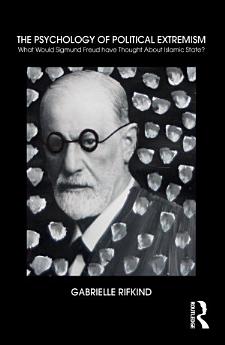The Psychology of Political Extremism: What Would Sigmund Freud have Thought About Islamic State?
Nov 2020 · Routledge
Ebook
110
Pages
family_home
Eligible
info
reportRatings and reviews aren’t verified Learn More
About this ebook
Recent terrorist attacks have left the UK (and Europe) genuinely at sea as to how to respond to these distressing events. There are the predictable interpretations with politicians on the right talking about counter-terrorism, harsher punishments and tightening up on the internet, whilst on the political left there is talk about blaming foreign wars. All this analysis is relevant, but insufficient. Politicians are not talking enough about why so many young people are sufficiently angry and alienated that they are prepared to be seduced by the toxic and poisonous ideology of Islamic State. The Psychology of Political Extremism examines both the politics and the psychology, as well as what motivates people to behave in ways that are so disturbing. Freud is the hook as the founding father of the talking cure. A radical and subversive theorist in his time, he claimed that mankind was influenced more by the inner workings of the mind and internal conflicts than by rational thought.
About the author
Gabrielle Rifkind is a practicing psychotherapist and group analyst, and a specialist in conflict resolution. She has spent the past two decades working in conflict resolution in the Middle East.
Rate this ebook
Tell us what you think.
Reading information
Smartphones and tablets
Install the Google Play Books app for Android and iPad/iPhone. It syncs automatically with your account and allows you to read online or offline wherever you are.
Laptops and computers
You can listen to audiobooks purchased on Google Play using your computer's web browser.
eReaders and other devices
To read on e-ink devices like Kobo eReaders, you'll need to download a file and transfer it to your device. Follow the detailed Help Center instructions to transfer the files to supported eReaders.






